Scaffolding for Socratic Seminar Transcript
+++ 00:00:00 +++
GFX:
Tch
Teaching Channel
+++ 00:00:04 +++
Johanna Paraiso: The name of the game today is all about arguing constructively when it comes to certain things in Brave New World.
CARD:
Scaffolding for Socratic Seminar:
Controversial Conversations to Engage
and Prepare Students
Johanna Paraiso: You guys, everybody's got a Chromebook. Your warmup is online. Everything's hyperlinked today.
Lower Third:
Johanna Paraiso
12th Grade English Teacher
Fremont High School, Oakland, CA
Johanna Paraiso: Today's class was about being given scaffolding instruction that will eventually lead them to a future class, where they will be able to do a whole class Socratic Seminar. All student facilitated. Be able to have an academic discussion, as a whole entire group about the text.
+++ 00:00:39 +++
Johanna Paraiso: We're gonna start by warming up your own brain to figure out what side you are on when it comes to certain themes in the book.
CARD:
COMMON CORE STATE STANDARD
Participate in a range of collaborative discussion on topics, texts, and issues
Johanna Paraiso: So it's more than agree/disagree. Please don't be afraid to put whether you strongly agree or strongly disagree.
Student: What if you're like in-between?
Johanna Paraiso: Oooo, what if-- you have to pick a side. C'mon, force yourself.
+++ 00:01:01 +++
Johanna Paraiso: We study Brave New World, because they can relate to the technology part very easily. The language is very challenging, but if I can find different ins, this is one of the ins, is examining what technology does to humanity.
Johanna Paraiso: We want to hear from everybody today. We're building to the ending, towards more-- towards the end of class where you will be debating and having a moral conversation about genetics, embryos, bebes, okay?
Johanna Paraiso: Up until now, what we've been doing to prepare for these kinds of-- this more reasoning conversation is we have conversations in general. We are not afraid of student talk here. From Day 1, having to share what you wrote in your journal, from Day 1, understanding that we are going to get to the point where we're having whole class discussions.
+++ 00:01:43 +++
Johanna Paraiso: Miss Anastasia, can you read six?
Anastasia: "Human being can be programmed to certain types of behavior to achieve stability within a society."
GRAPHIC CARD:
Warm-up: Debating Thematic Ideas
Respond to the following states and pic a stance
Required
6) Human beings can be programmed to certain types of behavior to achieve stability within a society.
Strongly agree
Agree
Disagree
Strongly disagree
Johanna Paraiso: So everybody reread it to yourself.
+++ 00:01:56 +++
Johanna Paraiso: The Common Core is asking all students to look at different types of non-fiction text. And part of being able to examine all kinds of texts is can you actually have a conversation about the text? Like can you start there? Can you actually talk and listen? And what I appreciate in the Common Core is the emphasis on listening and speaking. I feel like there is just more attention being paid to a person can demonstrate mastery in an area like this, because they can read, say what someone else said. They can paraphrase.
+++ 00:02:28 +++
Johanna Paraiso: I start first with how many people had trouble with the prompt itself? Anastasia, Zaria. How many-- ooo, whoosh! Whoosh! Okay, well let's then talk about the prompt. Let's clarify. "Human beings can be programmed to certain types of behavior to achieve stability within a society." Remember in Brave New World, community, identity, stability and you made connections to those words. Somebody take a stab at what they think this might mean if they had to paraphrase it?
+++ 00:02:56 +++
Student: I think it means that you just have to adjust what's going on around you, and like your surroundings, like, because you don't want to be like the outsider or be different from everyone.
Johanna Paraiso: Does that make better sense to folks that were really struggling? April, you want to add?
April: Humans are programmed to think one way in order, like to behave one way in order to fit into society basically.
+++ 00:03:15 +++
Johanna Paraiso: What I'm teaching in my class is communication. I want my students to be able to communicate in multiple forms. I want them to be able to articulate themselves orally. I want them to be able to write well. And when they read, I want them to make connections with what they're reading.
Johanna Paraiso: So we're warmed up. Go ahead and shut computers for now.
+++ 00:03:34 +++
Johanna Paraiso: After the warmup and after the discussion, the students then watched film clips. And we watched film clips, in this case, of students at from before. Because I think that it is important for my students now to see the work of others that came before them.
+++ 00:03:48 +++
Johanna Paraiso: You will be taking notes. We can't watch film clips without annotating somehow. And in your Writer's Notebook, can you just put "Brainstorm of Norms"? That's it. When you take notes, what do you notice about student behavior? Like what do you notice that they're doing well? Where do you notice that you might do the same behavior? Where do you notice that it didn't go so well, if you see something. Okay?
+++ 00:04:15 +++
Student: This is my Period 4 class and the Socratic Seminar officially begins now.
CARD:
Teaching Channel Video
Socratic Seminar: Senior Project Reflection
+++ 00:04:21 +++
Student: By me going through the feedback and highlighting it, not only-- the study had good presentations, what made their presentations from choices, just saying basically their personal experiences made it engaging into including their content in their presentation, which they found like they was very passionate about.
Johanna Paraiso: Being able to use footage like in that legacy style is important.
CARD:
COMMON CORE STATE STANDARD
Speaking and Listening:
of knowledge and ideas
+++ 00:04:41 +++
Johanna Paraiso: Because that to me is-- my students, the other English Language Learners that are articulating themselves very well on film, and they know that it's possible. Being able to show student work is so much more powerful than e direct lecturing on anything.
+++ 00:04:57 +++
Johanna Paraiso: That's where we're going today. This type of a conversation. We're going to do a quick brainstorm. I'm going to capture the data. I'm going to use PadLet so that we can create a class list across all three senior classes. We're going to look at norms for discussion. So what did you notice?
+++ 00:05:13 +++
Student: I see the student trying to give advice to the future upcoming seniors.
Johanna Paraiso: Did you listen?
Student: Yeah.
Johanna Paraiso: You did?
Student: Yeah.
Johanna Paraiso: Good.
Student: I seen a lot of eye contact.
Johanna Paraiso: Mm.
+++ 00:05:26 +++
Student: And that's like, I don't know, eye contact, you know, if I'm talking and I see someone paying attention, you know, and I feel their eyes on me, that means they're engaged and then they actually want to listen to what I have to say.
Johanna Paraiso: Sir Javon.
Javon: Everyone took turn to speak, and didn't cut nobody off. Like nobody didn't feel like they had to say was bigger than somebody else.
Johanna Paraiso: What did you mean to you to be able to see people that you knew up on film? Be honest.
+++ 00:05:49 +++
Zaria: It made me feel comfortable. It made me feel like, "Okay, if my friends could do it, then I could do it." Or like, basically like my friends were engaging in this conversation, so I could be able to engage, too.
+++ 00:05:58 +++
Johanna Paraiso: We were ready at that point. We-- a lot of prep work to get there so that they could actually have the conversation. I actually choose the groups ahead of time, because I want to make sure that there's a balance that my long-term English Language Learners, that there is-- that there's just balance. I want to make sure that everybody has a chance to speak. So it's not just about language ability. I'm looking at personality, I'm looking at gender balance.
+++ 00:06:21 +++
Johanna Paraiso: You are going to start with a quick write. The prompt is, "What if you could screen embryos for diseases before they became babies?"
ON-SCREEN CARD:
Prompt:
What if you could screen embryos for diseases before they became babies?
What if you had the power to choose the traits your baby would have?
Would you use it?
Johanna Paraiso: So there's-- that's one of the questions. "What if you had the power to choose the traits your baby would have?" Would you use that power?
+++ 00:06:46 +++
Johanna Paraiso: What I love is that even simple like reasoning why still makes you write as a student. You still become a part of that conversation. And as a teacher, and in my walk-around, I'm particularly noting my English Learners and what they're saying, because those are the kids I'm going to think, "You know what? If I brought what they're saying as one of the complexities when I do that part of it, that kid feels a little bit more special. What they said mattered enough, and so now the teacher introduces it to everybody else.
Johanna Paraiso: All right, are you ready?
Students: Yes.
Johanna Paraiso: All right, go ahead.
+++ 00:07:16 +++
Student: We don't have the power to choose. Only God does. I think I'm just gonna leave it like that. And just gonna be what it's gonna be.
Student: I agree and disagree with you. Because like if we had that power, because then people would abuse it and people would make perfect babies every time.
Johanna Paraiso: As the facilitator of all of this, my job is to kind of-- what am I hearing? Because part of the rounds of more reasoning conversation is that you throw some type of complexity in there. A wrench, something that jars the thinking.
+++ 00:07:50 +++
Johanna Paraiso: So here goes, you have two. They are twins. You got that much so far. You have one that has some type of a disability, some type of a disease, something that'll just make that child wheelchair-bound forever. Okay. Then you have another one that's perfectly healthy. Here's the wrench, though. If you were to screen the disabilities, like get rid of this disability here, that means that you're also saying no to this one.
Zaria: You gotta take that one away, too?
Johanna Paraiso: This one goes, too.
Zaria: Aw, man!
+++ 00:08:20 +++
Johanna Paraiso: You have a choice to make. You have to choose if you're going to accept both--
Student: Or neither!
Johanna Paraiso: Or keep neither.
Johanna Paraiso: Part of it is teaching the students, you want to have your perspectives and you want to be able to name it and defend it and stick with it. But then, that doesn't mean that you don't listen to other perspectives. So part of introducing a wrench is to give them, "Well, here's this other layer, though, that we may or may not have thought about."
+++ 00:08:47 +++
Student: I wouldn't want my kid to go though life like suffering, like saying, hooked up to a breathing machine, in a wheelchair like all life, they could do so much but like having to breathe through a machine, that's not living.
Student: I had an auntie that had twins, and it was like similar to that. So I'm here like, I'm stuck.
Zaria: Keep them?
Student: Yeah, I'd keep both. And the kid with disability, I would take them to a place where there are kids with the same problem, and--
+++ 00:09:15 +++
Johanna Paraiso: We're going to go through the more reasoning conversation a few more times. Gonna look at Chapters 1 and 2 of "Brave New World," and pull-- I like to create scenarios based on the text. So when they see them in the text, something's clicking. Like, "Oh, we talked about this." And then when they actually get to the writing, when they're actually answering analysis questions, then they're just remembering things that they talked about in conversation before that.
+++ 00:09:37 +++
Johanna Paraiso: Wrapping up last thought, and hold it. Whoosh! Good, okay. That's where we want Socratic Seminars to end. Non-closure. We want it to end on a place, though, where everybody feels like they were heard. I want to acknowledge the awesome. Well done. That was your first moral reasoning conversation.
Johanna Paraiso: You're pointing out to them, "This is hard. It's expected that you struggle. It's expected that you're going to struggle with defending yourself in conversation. It's expected. So be okay with that."
+++ 00:10:03 +++
Johanna Paraiso: These questions about engineering genes and people, that's happening. So that is our novel. That is our text we're trying to connect to. Structurally, we're practicing the discussion piece, right? Because very soon you will be in full Socratic Seminars. That's what we're trying to gear up for. All right! You guys are awesome!
CLOSING GRAPHIC CARD:
Tch
Teaching Channel


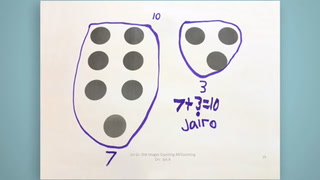
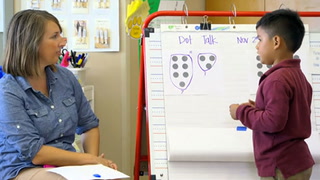
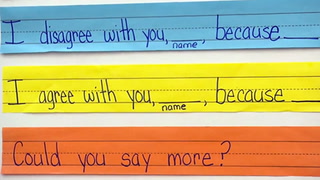

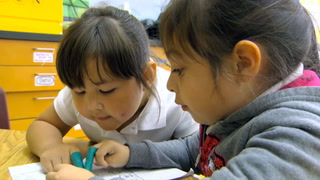
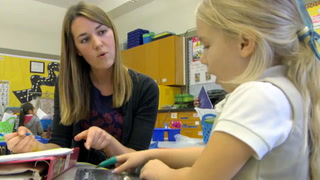
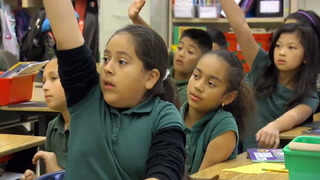
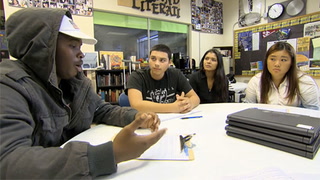
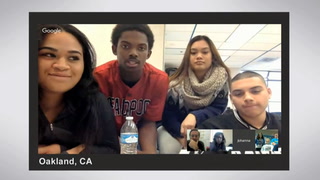
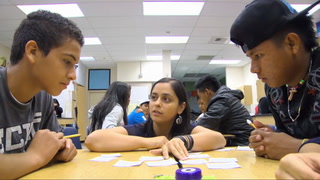
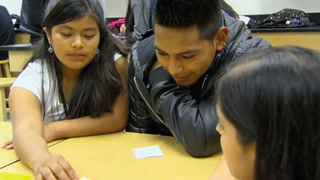









40 Comments
geoff howard Nov 15, 2019 9:51am
These conversations help students hear what a strong argument, based on evidence sounds like.
The technology helps engage students and allows them to see and hear what good arguments and discussions look/sound like.
It provides a safe space for students to try out ideas.
Sarah Von Heal Oct 22, 2019 10:57am
She has her students engage in discussions that challenge them to relate to one another on very passion evoking topics. They talk about an overall prompt and work through why they feel the way that they do but then she also throws a wrench into their discussions by giving them an additional layer of complexity in the questions that relates back to the text. All of these actions prepare them to eventually deliver and defend a position which will be done in a full blown Socratic Seminar.
She uses a wide variety of technology within her lessons. The students respond to discussion prompts in the beginning to help formulate their thoughts and opinions and to take a stand. She uses videos of past classes to help her students see that they are capable of similar actions and to evaluate performance, thus fine tuning their own. She also uses Padlet to connect all ideas amongst her three different senior classes in order to help the students make connections to their peers.
The students are slowly scaffolded into an independent position and paper. She helps them continuously talk through things and explain their viewpoints in a variety of ways so that especially her English Language Learners are able to formulate and evaluate their own thinking in English. The level of guidance that she provides really allows her to help teach the entire process of constructing one’s thinking and then putting that onto paper rather than just giving them a one day assignment where they may or may not be able to demonstrate that same level of understanding.
Amanda Mudlock Sep 11, 2019 3:59pm
Ms. Paraiso prepares her students for Socratic seminars by encouraging communication in multiple situations. The classroom is focused on conversation. Students participate in range of collaborative discussions, share journal entries, and practice speaking, listening, and clarifying skills.
Ms. Paraiso uses technology in a variety of ways. For example, the students use Chromebooks for warm-up activity to take a poll. She also uses film clips to have students observe behavior of others and make connections while they take notes.
By students contributing to conversations, it helps all students, especially ELL, engage with the text more easily. Students make connections through conversations. By using their own words and voices, the conversation helps all learners truly comprehend the text.
Laura Harlick Jun 12, 2019 3:33pm
Connie Morgan Jun 3, 2019 1:03pm